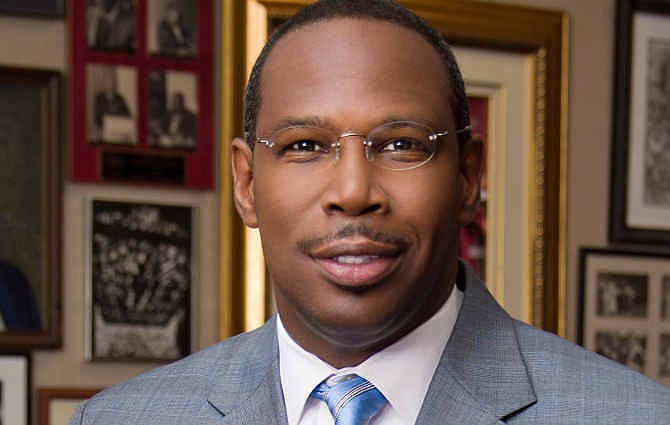Some Lincoln University students have started an online petition seeking to "Keep Dr. Said Sewell as Vice President of Academic Affairs" after LU's Faculty Senate voted overwhelmingly last week to pass a resolution saying the faculty has "no confidence" in Sewell's ability to work as the VPAA or as provost.
In their Change.org petition, the students claim the Faculty Senate "feels that (Sewell) is insensitive to their needs that Dr. Sewell interferes with the academic freedom of the faculty (and) has incorporated his own curriculum & in by doing so he is trying to diversify Lincoln Universities (sic) campus."
Sewell is in his third year as LU's provost and VPAA.
Among its provisions, the Faculty Senate resolution said: "Dr. Sewell has repeatedly violated the principles of shared governance and has not responded in any substantive way to the concerns expressed by our members. We do not expect any improvement from the current VPAA."
Shared governance is part of LU's rules and regulations, saying that the faculty, staff and students "shall share a role in the governance of the institution."
At the faculty level, that includes oversight over courses offered and teaching workloads."
While the students' petition says Sewell "has incorporated his own curriculum," the faculty's rationale for the no confidence vote argued: "Sewell has regularly ignored committee recommendations or made decisions on his own without consulting relevant committees."
The students' petition adds: "We believe that since Lincoln is a Historically Black College and University we should have more diversity among our staff and faculty."
Based on 2005-15 figures compiled by the state Higher Education department and presented by LU President Kevin Rome at the August Faculty-Staff Fall Institute, African-American students have been between 34.6 percent (in Fall 2012) and 41.5 percent (in 2011) of the total student body.
White students have been from 49.3 percent (in fall 2014) to 58.13 percent (in 2012) of the total student population.
But in the 2015-16 school year, Rome said in August, only 34 African Americans were on the faculty - or 21.79 percent of all 156 faculty, while the 92 Caucasian faculty were 58.97 percent of the total.
"When we talk about diversity and we talk about our faculty, our faculty does not represent our student diversity," Rome said during a 75-minute presentation in August. "It just doesn't."
Thursday morning, while the Faculty Senate was counting the hand-marked ballots cast on the Sewell resolution, one student asked the teachers' group: "What is the problem with hiring more African-American faculty?"
In an interview after Thursday's vote, Faculty Senate Chairman Bryan Salmons told the News Tribune: "As someone who frequently finds himself, as a department head, looking for faculty - and we always try to prioritize hiring minority faculty - we just are non-competitive.
"There are so many different factors involved - and one that doesn't get enough serious, critical attention around here is market force."
Salmons said those market forces often include poor pay - and other schools' benefits packages often are better.
"They crush us in the open marketplace, when we're competing for faculty," he said. "What we have to offer here is special - but you can't expect people to act against their own financial interests, when making career decisions.
"That's just not reasonable."
Also as the ballot count continued Thursday, LU Criminal Justice and Sociology Professor Abdoulaye Bah told the students watching the meeting it's a mistake to make a racial issue out of the faculty unhappiness with Sewell.
"If we make this a fight of race between black and white, we will be losing the fight, all of us," Bah said. "We need to make this a fight about student success.
"We need to make this a fight about Lincoln moving forward.
"We need to make this a fight about our being responsible to the young people who are out there."
He argued Lincoln doesn't seem to have money to "have a computer lab that works but it can pay $60,000 for some video on You Tube."
He noted administrators come and go at most colleges and universities, pointing to his own history as an LU professor since 2002.
David Henson was president when Bah arrived, and he was followed by Carolyn Mahoney, Interim President Connie Hamacher and now Rome.
"Four presidents in 15 years," Bah said. "Six vice presidents."
But there are plenty of people here who care about this institution and its students, Bah said.
Students questioned how a vote against Sewell was in the best interests of the students who support him.
"We have no interest in fighting with students. We spend our entire careers training to fight for students," Salmons said in an interview.
Bah told the students: "We are not here to fail you - we would like for you to succeed."
Previous coverage:
LU's Sewell faces 'no confidence' vote today, Sept. 29, 2016
LU faculty asked to vote 'no confidence' in Sewell, Sept. 23, 2016
Sewell fails in survey of LU faculty, Dec. 2, 2015

